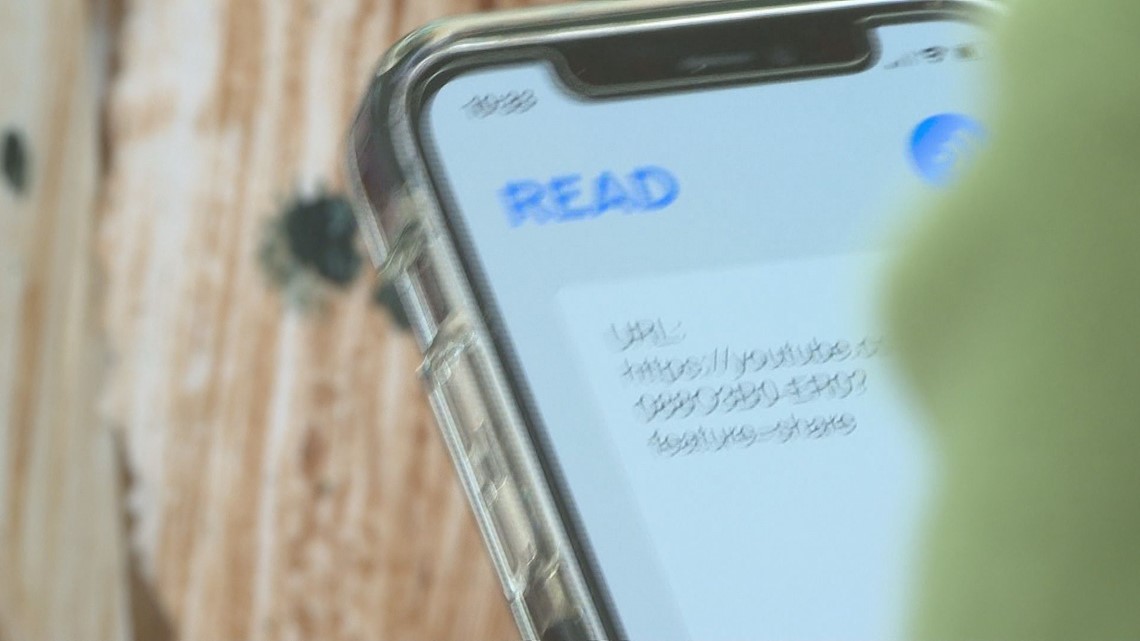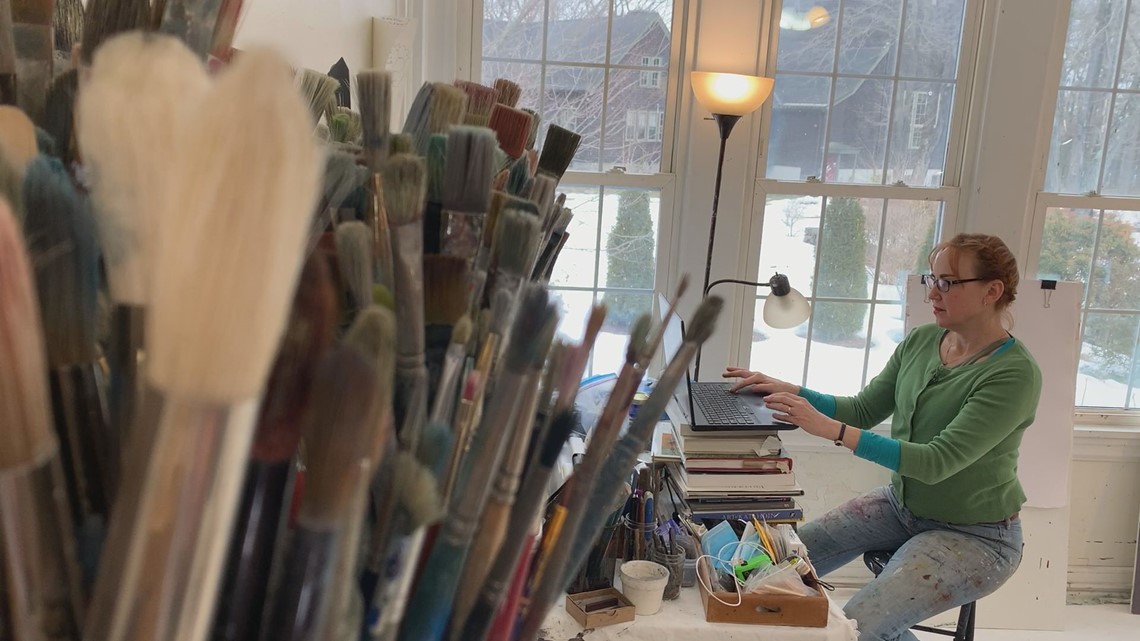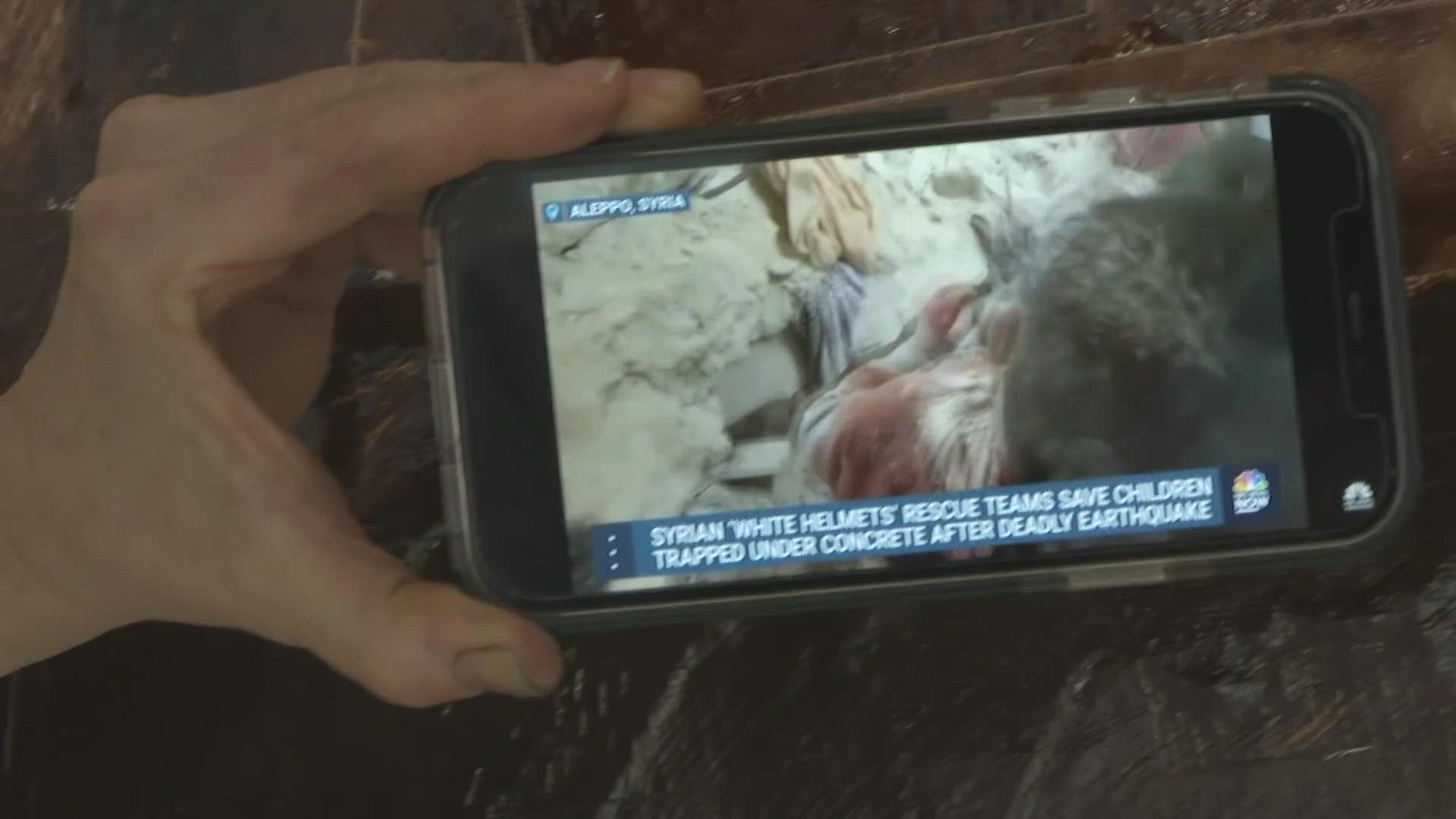FALMOUTH, Maine — At first glance, Erin McGee Ferrell's home art studio looks pretty typical. You'll find countless paintbrushes, artwork in all corners of the sunlight-filled room, and empty canvasses waiting patiently for that first brush.
And like many artists, McGee Ferrell said she's used drawings and paintings as a way to express herself since she was a child.
But this contemporary American painter has something unique on her walls. Her latest work features large-scale paintings with interactive recordings that show news clips and articles about the recent earthquake in Turkey and Syria.
“We’re human. We’re all connected [to that disaster] in some way," McGee Ferrell said.
The artist wanted to capture the human emotions from this month's natural disaster in these paintings, As of Wednesday, more than 40,000 people have died due to the earthquake.
One painting in the studio depicts multiple stories from emergency crews rescuing people from under the rubble, or the grim reality that some families will never be whole again.,
“[There are] no words to even wrap your head around that amount of grief and loss," McGee Ferrell added. “I needed to express it.”


There are marks on the paintings, like QR codes, that will give factual information about the story McGee Ferrell captured in the paintings.
McGee Ferrell said she wanted to make her work more interactive so people could engage with the paintings and not just walk by them in a gallery.
The new way of displaying and promoting her art is something she talks about in the classroom. McGee Ferrell is a part-time art professor at the University of New England.
She said many of her students aren't art majors, so she wanted to try new ways to get more Mainers to enjoy the work of artists in general. These works, McGee Ferrell added, can also help her students relate to the situation in Turkey and Syria by relating to human emotion,


Painting these stories that we as humans can relate to is one reason why McGee Ferrell is confident there will always be a place for artists in society.
She recently led a class discussion on how Artificial Intelligence software may be able to design drawings or other pieces of art, but they miss the human element.
"I think we can work with AI, have fun with it and embrace it," she added. "But I don't feel like [artists] will ever be replaced.
You can access the interactive exhibit here.

